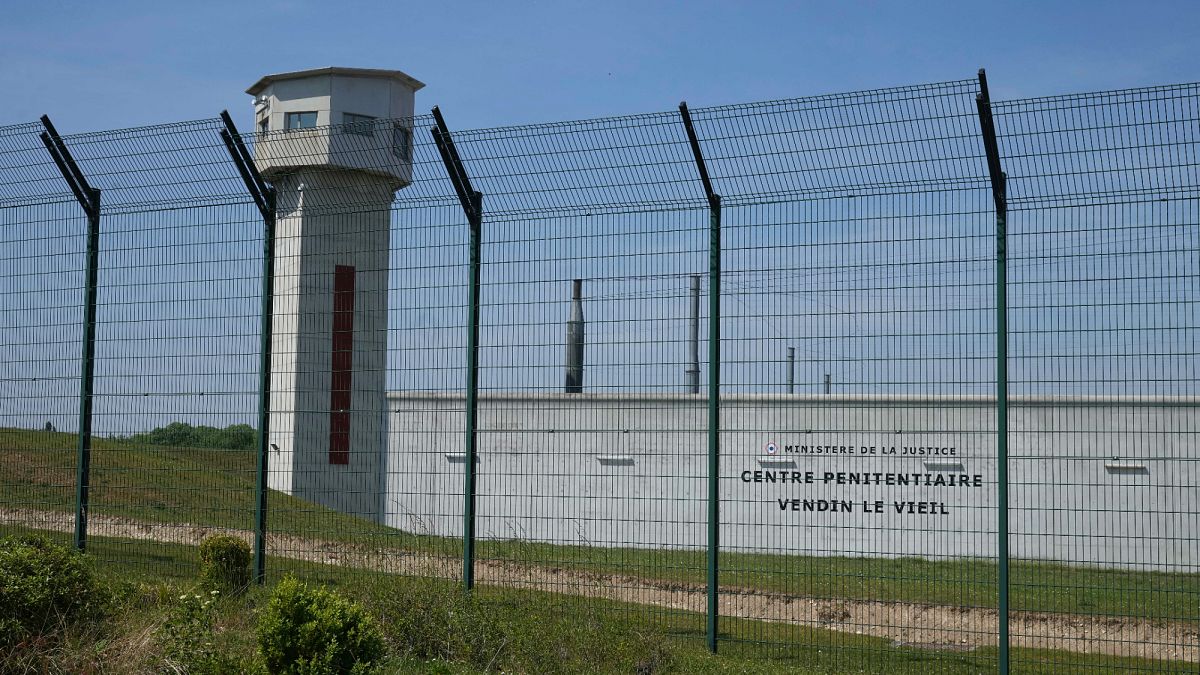French authorities are exploring a radical option to tackle severe overcrowding in the country’s prisons: renting cells in other European countries.
But while the idea, floated by French President Emmanuel Macron in a recent televised interview with national broadcaster TF1, has sparked some interest, it’s also attracted criticism from some in the prisons system who see logistical, legal and ethical challenges.
“Holland rented out its prison beds to Belgium with its own staff but under Belgian law. The Dutch personnel had to be trained to understand how things worked in Belgian prisons,” explained Dominique Simmonot, France’s Controller-General for Places of Deprivation of Liberty, an independent public body in charge of controlling the country’s prisons.
“And secondly, family visits were extremely complicated due to visa requirements and the distance,” Simmonot added.
“In the end, Belgium abandoned the project, so I see no reason to repeat the experiment.”
With more than 82,900 inmates and just 62,000 prison cells, France is rapidly running out of space.
It’s also the third-worst performer in Europe for prison overcrowding, behind Cyprus and Romania, according to a study by the Council of Europe published last year.
Annabelle Bouchet, Deputy Secretary General of the SNEPAP-FSU prison staff union and a long-serving probation officer, also doesn’t believe the idea is realistic.
“There are some very concrete elements that, in my opinion, make it very, very, very difficult to implement such an idea,” Bouchet told Euronews.
“Firstly, from a budgetary point of view, going abroad to rent premises has a cost. And today, the state of French public finances is such that budget cuts have to be made everywhere. I don’t see how it could be profitable to send convicts to another facility outside our borders,” she pointed out.
As a probation officer, Bouchet also mentioned the potential strain on reintegration, warning that placing prisoners far from their families and support networks could affect their long-term rehabilitation.
“Deporting people who have been sentenced and incarcerated means they’re far from their families, but it also means they’re far from the employment areas and actors that will enable them to be reintegrated into society,” she explained.
Earlier this year, French Justice Minister Gérald Darmanin suggested building modular prison units to house inmates serving shorter sentences.
Macron has also expressed interest in streamlining the construction of 5,000 new places using faster, lighter structures.
But according to those who work in the system, sending inmates abroad or building more units will not fix prison overcrowding.
Bouchet believes alternative sentencing and better mental health and addiction counselling could help reduce the prison population.
“Today, not all of the people who are sick and who commit offences because of their addiction or mental health issues should be in prison. We need to think of another solution because prison is not the answer to everything,” she said.
Which European countries have rented foreign prison cells?
France is not the first country to explore this option. Between 2010 and 2016, Belgium rented 680 prison places in the Dutch town of Tilburg.
In 2021, Denmark signed a 10-year, €210 million agreement to lease 300 cells in Kosovo.
And Estonia has expressed interest in renting out vacant space in its prisons to other countries, estimating potential annual revenue of €30 million.
While the Danish-Kosovan deal amounts to nearly €200 per inmate per day, France’s daily cost per prisoner currently ranges from €100 to €250, depending on the type of facility, according to broadcaster TF1.
Belgium’s previous partnership with the Netherlands amounted to €40 million annually, due in part to staffing costs.

